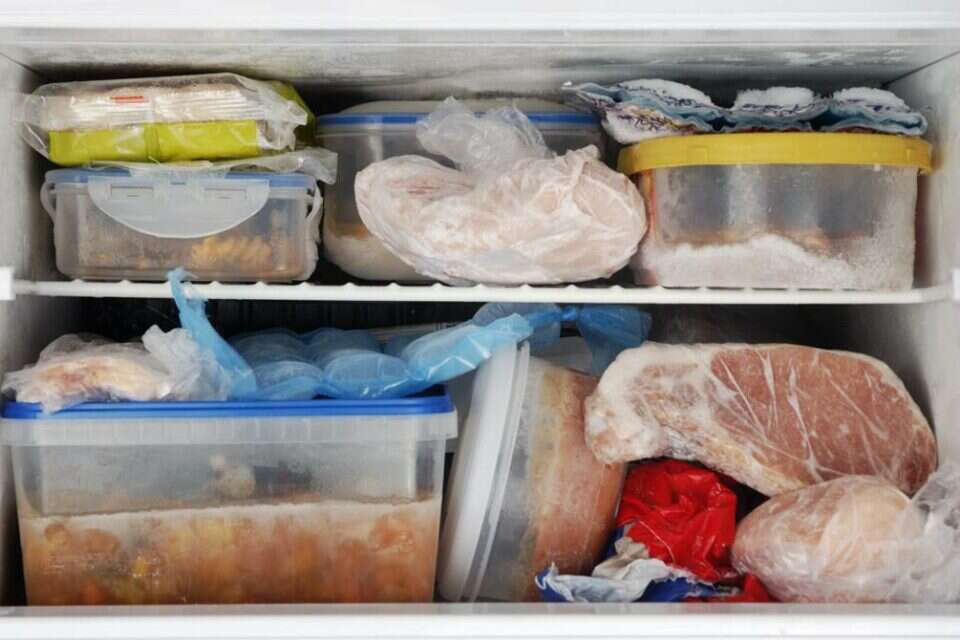Have you invested a lot of your time, prepared something for yourself to eat and leftovers that you want to enjoy later? You ordered food from outside and didn't finish it – but don't feel like throwing it away? So what do we do? Of course freezers. Just how do you do it right?
Using the freezer will not only help preserve the food, but will also preserve its nutritional values. Beyond proper freezing, it is also advisable to understand how to defrost the food, so that its taste and texture will be as similar as possible to the real thing. Here are some rules that must be followed for it to work.
What is worthwhile and what is forbidden?
According to the USDA, you can freeze any food you want forever (but you should know that after three months, the texture and taste of the dish will change) – except for whole eggs or canned food (but between us, why would you do that in the first place?).
According to the guidelines of the Clalit Health Fund website, food that comes in a sealed package and is kept deep in the freezer can last several months, up to a year. But keep in mind that "holding" means that the dish will be edible because no bacteria will develop in it – but it won't necessarily remain tasty.
If you've planned to freeze food you've prepared, then even before you embark on the cooking task, it's important to know: there are some ingredients that won't thaw the best.
What for example? Cream cheese, sour cream, cottage cheese, and ricotta cheese are some examples of foods that won't be very successful after you reheat them, because freezing changes their texture.
Potatoes, leafy greens and lettuce leaves are also vegetables whose thawing will not benefit them after freezing, due to the high amount of water in them. Therefore, it is better not to freeze them directly, but only as part of it. It is also not recommended to freeze and then thaw mayonnaise-based dishes (the combination of olive oil, egg yolks and lemon juice will not be pleasant to the palate, to say the least, after thawing). The same applies to hard-boiled eggs and salads, since the water in the salads will freeze and significantly damage their texture after thawing.)
It is not recommended to put them in the freezer. Potatoes (illustration), photo: Dudi Vaknin
Preparation in advance
Before putting your food in boxes and from there in the freezer, it's a good idea to cool the portions a bit. The reason: the relatively high temperature of the hot dishes can damage the other foods in the freezer, to the point that in certain situations – they can be thawed and even spoiled. Instead, it's best to put the food in the fridge first. If you don't feel like waiting for it to cool, fill the kitchen sink with cold water with ice, put the pot with food or the boxes you put it in the water so that it covers half the height of the dish. Do this for a few minutes and cool to a reasonable temperature.
And now to the main thing: freezing
When you freeze your food, you should make sure it is stored in boxes with a lid as sealed as possible to prevent oxygen from penetrating.
If you're freezing soups or stews, make sure you wrap the box tightly in a plastic wrapper. Heat meats, vegetables, pastas or cereals? Prepare them in advance until the level of action closest to the desired one. That way, when you warm them up after thawing – the degree of work will be perfect.
Thawing chicken in lukewarm water, photo: iStock
And thanks to microwave
To make sure the food you've frozen is safe to eat, thaw it in the refrigerator – not at room temperature. Know that it is absolutely forbidden to freeze thawed food again (this is a recommendation of the Israeli Ministry of Health).
Of course, food can be defrosted by microwave heating - this is indeed a quick and easy procedure, but it can damage the texture of the dish and in some cases even overcook it, causing changes in the amount of preparation.
Food in the freezer, photo: iStock
Wrong? We'll fix it! If you find a mistake in the article, please share with us

